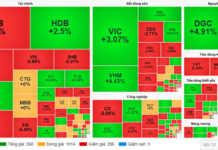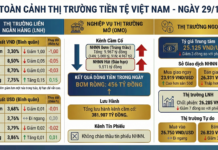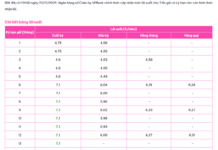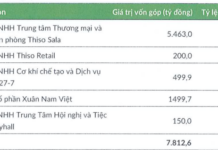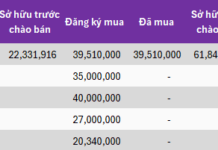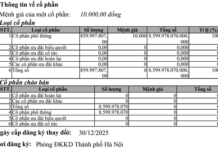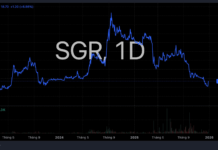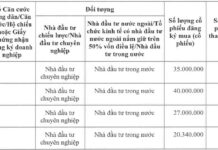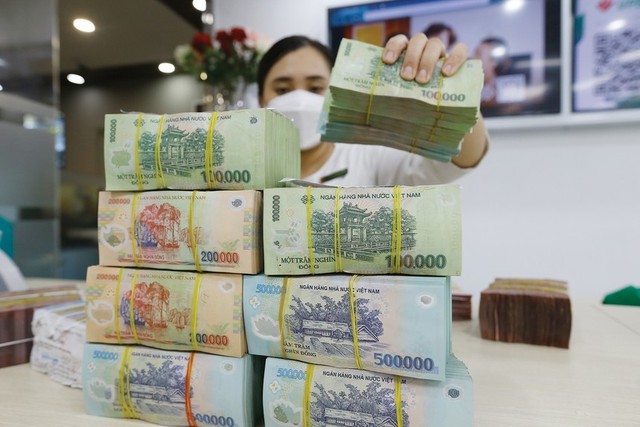
Illustrative image
In its recently published money market report, Rong Viet Securities (VDSC) noted that credit growth accelerated during the final days of the second quarter before slowing down again in early July 2024.
Citing data from the State Bank of Vietnam, VDSC revealed that credit growth increased from 3.4% year-to-date at the end of May to 6.0% at the end of June, only to decelerate to 5.3% as of July 17.
“While this development aligns with the trend of credit growth, the magnitude of change during the end of the second quarter was unprecedented. Hence, the deceleration in July is likely to be more pronounced than in previous years,” VDSC remarked.
Despite the slowdown, VDSC estimates that credit growth for the first seven months remains robust at around 14.5% year-on-year, closely approaching the State Bank of Vietnam’s annual target of 15%.
The analysis group observed that credit growth was uneven across banks and industries. Citing a report from the State Bank of Vietnam, VDSC noted that while some banks recorded higher credit growth than the system-wide average, others lagged significantly. Recent disclosures indicate that LPBank (up 15.2% from the end of 2023), HDBank (13.3%), and ACB (12.4%) experienced strong credit growth, whereas VietinBank, a state-owned joint-stock commercial bank, reported a more modest increase of approximately 6.7% as of June 30, 2024.
As of the end of May 2024, certain sectors outpaced the overall credit growth. These included industry (+5.6% compared to the end of 2023) and trade (+3.8%). Notably, credit to priority areas witnessed remarkable growth, with a 9.8% increase in supporting industries and an 18.2% surge in high-tech industries. Additionally, credit growth in the real estate sector exceeded the system-wide average, rising by 4.6% from the end of 2023. Within this sector, credit for real estate business activities climbed by 10.3%, while consumer real estate credit edged up by a mere 1.2%.
VDSC also disclosed that non-performing loans continued to rise in the first half of 2024, accompanied by robust debt restructuring and rescheduling activities. According to estimates by the State Bank of Vietnam, the ratio of non-performing loans on the balance sheet stood at 4.94% as of the end of May 2024, up from 4.55% at the end of 2023. Meanwhile, the ratio of non-performing loans, including restructured and rescheduled debts, remained largely unchanged from the end of 2023, hovering at 6.9%.
In absolute terms, VDSC estimates that non-performing loans on the balance sheet increased by approximately VND 75.9 trillion compared to the end of 2023. Notably, restructured and rescheduled debts under Circular No. 06/2024 and Circular No. 02/2023 witnessed a significant surge, with the total value of principal and interest rising by 25.5% from the end of 2023 to VND 230.4 trillion. Concurrently, the number of customers benefiting from debt restructuring and rescheduling arrangements climbed sharply from 188,000 to 282,000 as of the end of June 2024.
Overcoming Challenges in Dealing with Bad Debts
In the newly passed Revised Securities Law, securities companies (SCs) no longer have the privilege to hold collateral. Therefore, SCs need to recognize that debt collection is their responsibility, and they should be extremely strict in assessing borrowers, ensuring compliance with principles, procedures, and conditions before granting loans.
VPBank strengthens its system in 2023, laying the foundation for sustainable growth
By 2023, VPBank has made significant strides in expanding its customer base and scaling up its operations. The bank has managed to make progress amidst challenging macroeconomic conditions, focusing its resources on strengthening its system and building momentum for sustainable growth in 2024 and beyond.


